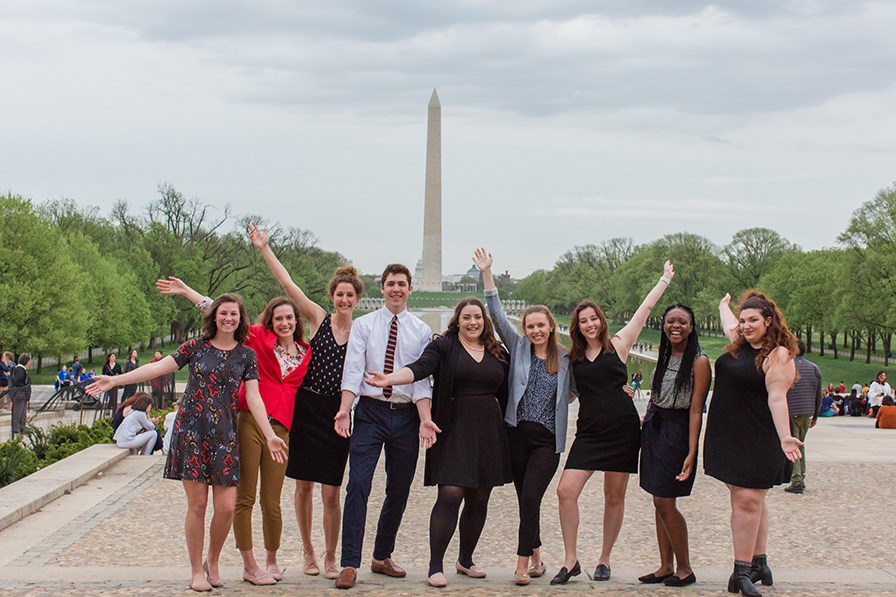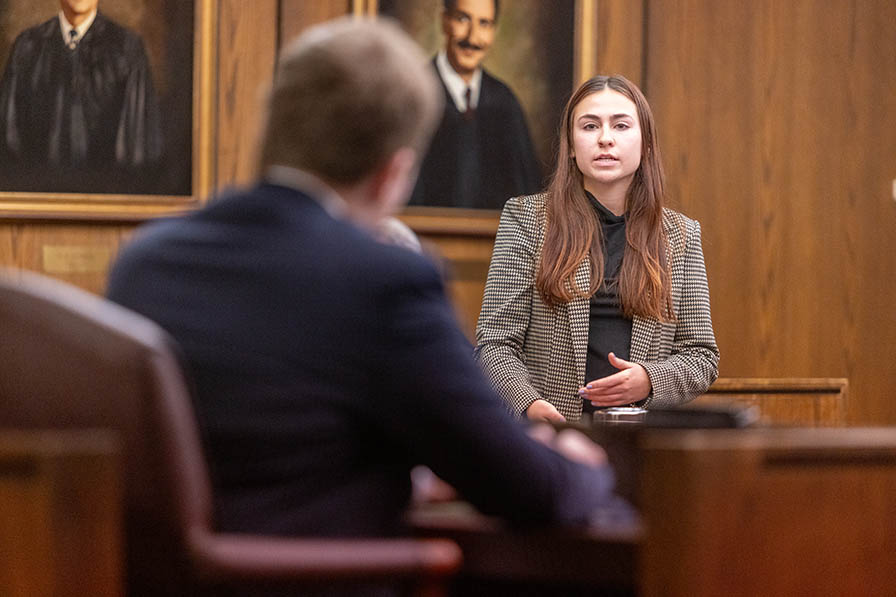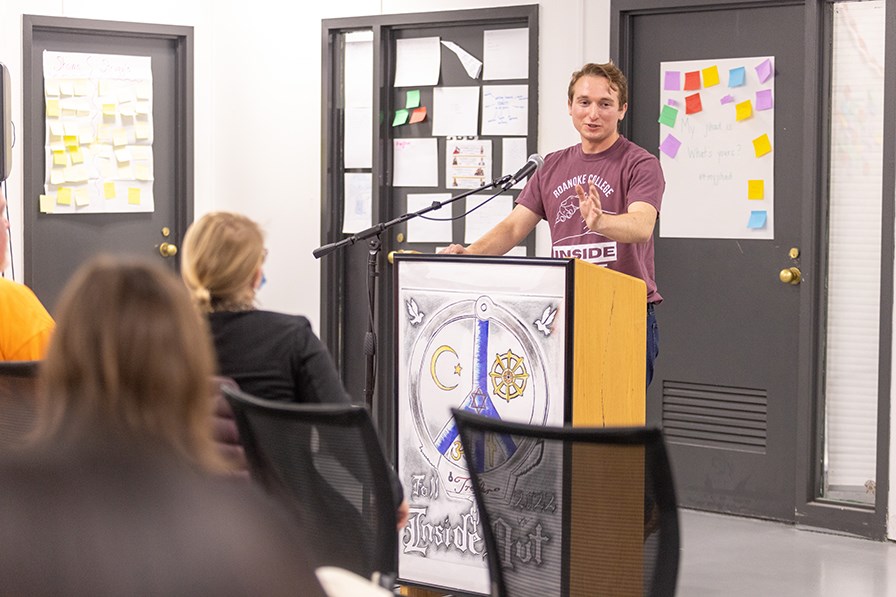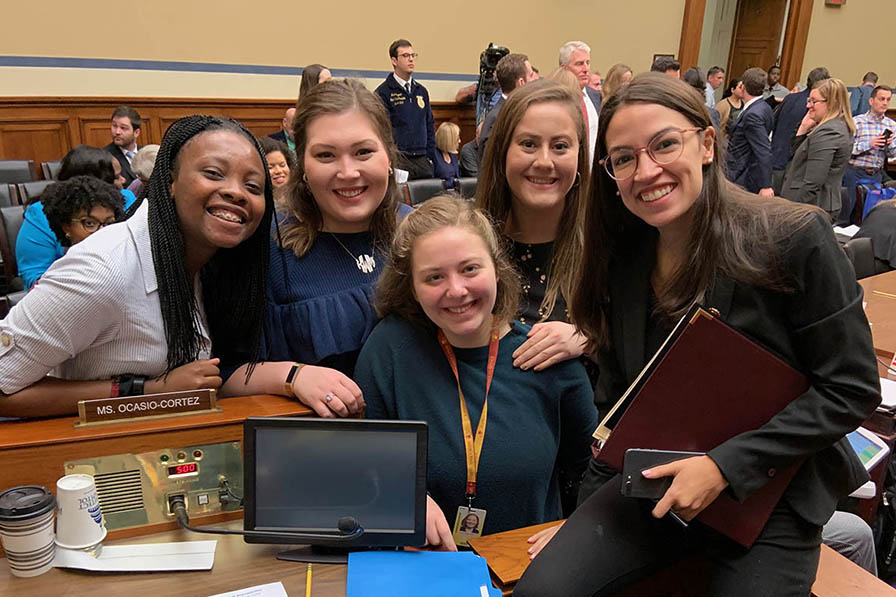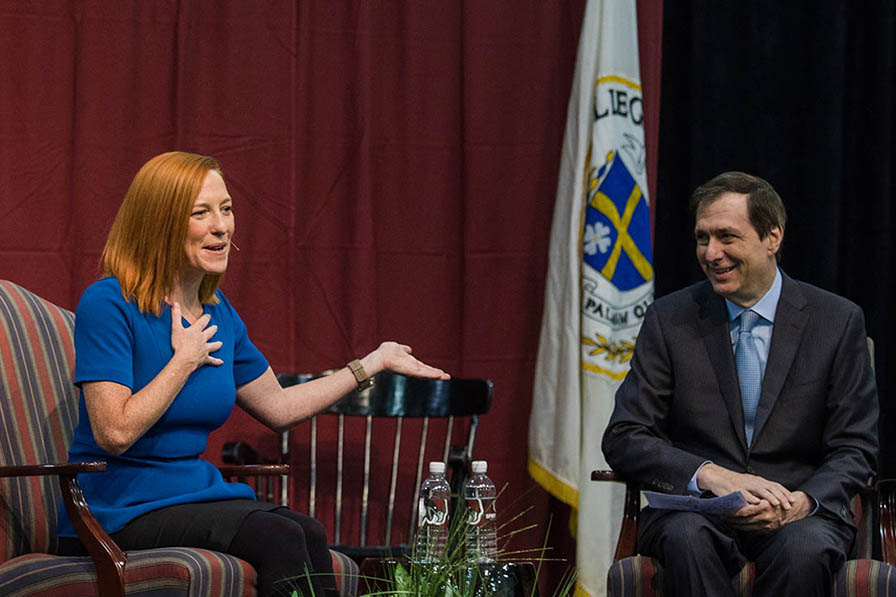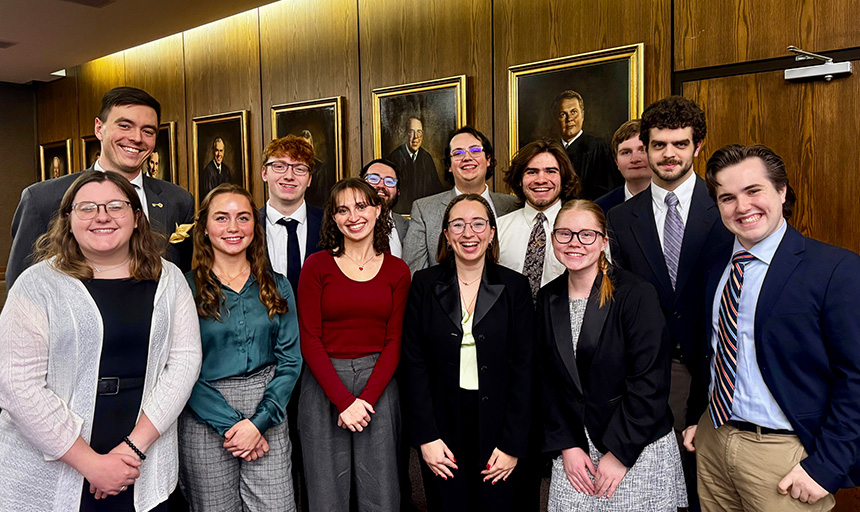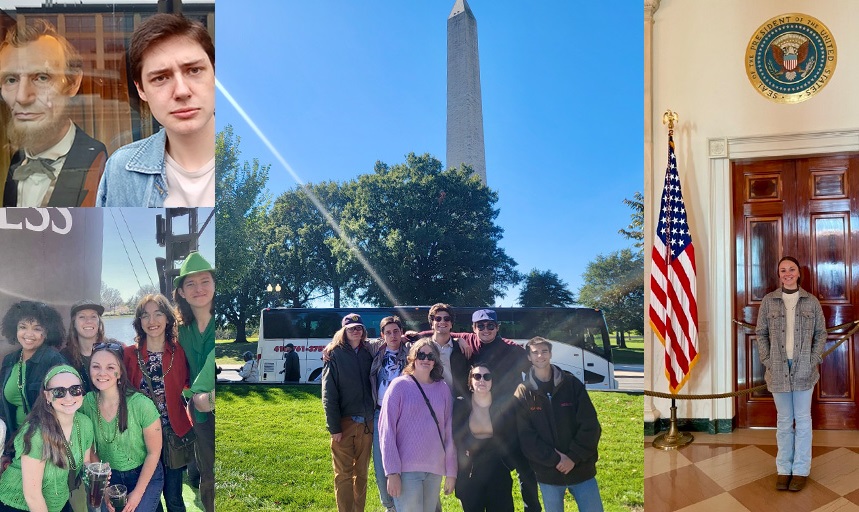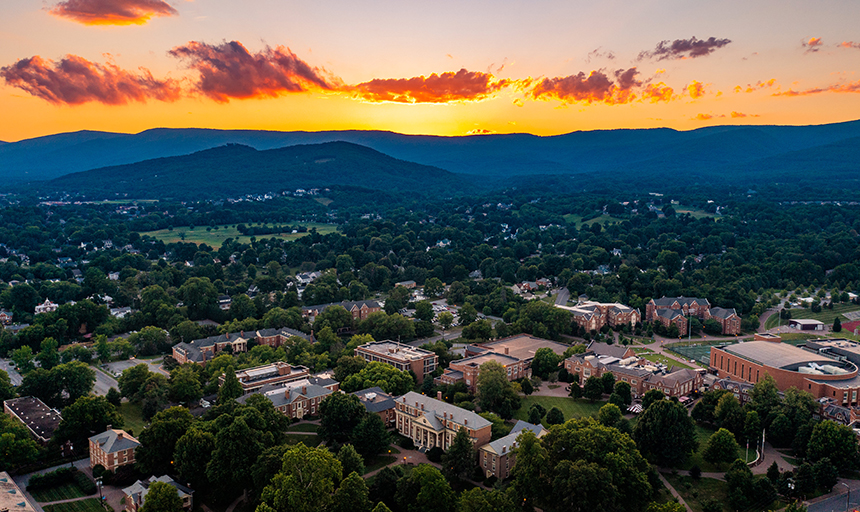Criminal Justice
Available as a major
As a criminal justice major at Roanoke, you'll investigate the causes and impact of crime, as well as methods of controlling criminal behavior.
Our approach offers you both a deep exploration of criminal justice issues and practices, as well as exceptional communication and problem-solving skills. The major approaches criminality through political, sociological, scientific and psychological perspectives.
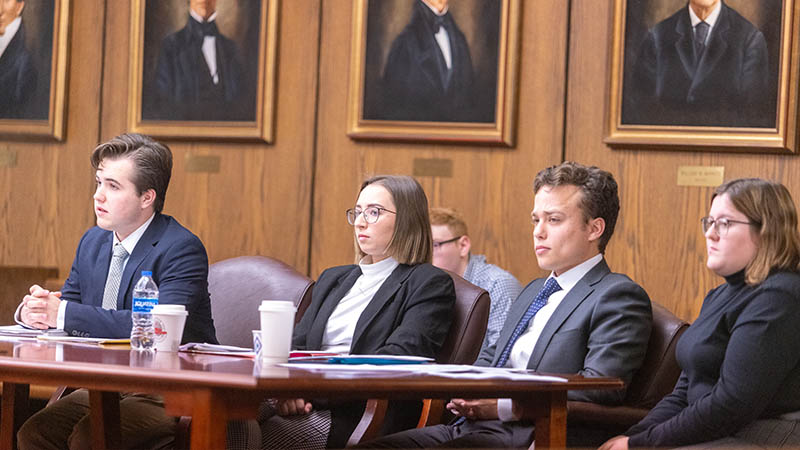
Curriculum & Courses
Sample Course Offerings:
Forensics
Law and Film
Inequality in Criminal Justice
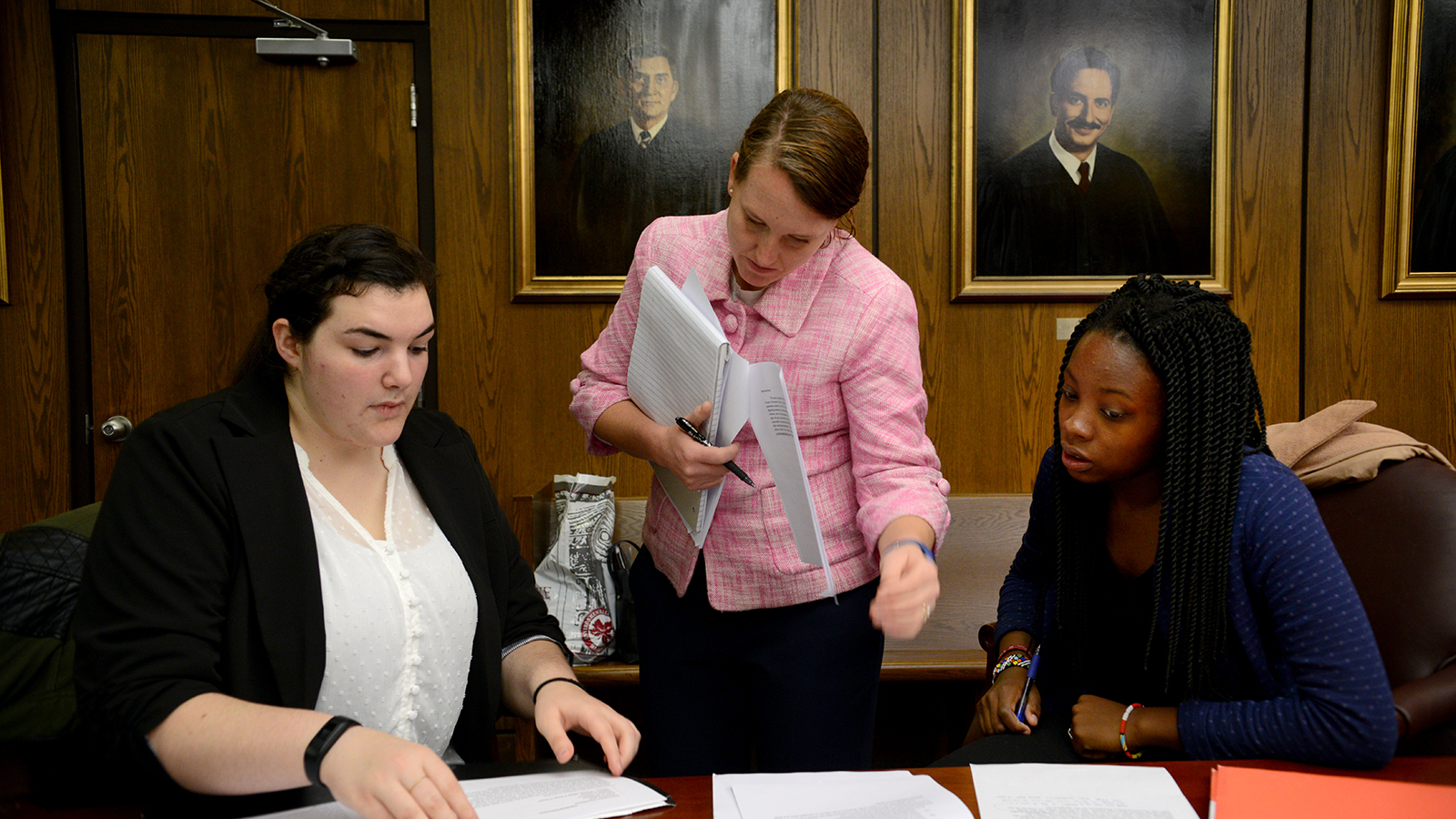
Learn By Doing
-
Our Washington Semester gives you the chance to complete federal internships with agencies such as the U.S. Marshals Service, the Secret Service and the Bureau of Alcohol, Tobacco, Firearms and Explosives. This program allows you to live, study and intern while earning academic credit from Roanoke College. You will take two courses taught by professors from surrounding universities as well as complete an internship.
-
A real courtroom. A real judge. A real-world challenge. That is the setting for Roanoke College’s mock trial team when they step up to argue their cases in their first live event.
-
Dr. Daisy Ball, assistant professor of criminal justice, launched an Inside-Out Prison Exchange Program class at Roanoke College. Inside-Out is a unique international educational program that brings traditional college students (“outsiders”) together for semester-long learning with incarcerated individuals (“insiders”). Roanoke College’s program is one of only a handful of Inside-Out programs in Virginia.
-
Roanoke students have incredible opportunities to study and tackle internships in the legislative and judicial branches of government.
-
Roanoke hosts several lecture series that serve as an open forum on public affairs and law. In addition to classroom sessions with Roanoke College students, guest lecturers give public addresses, free of charge, to the community.
-
Teach-ins
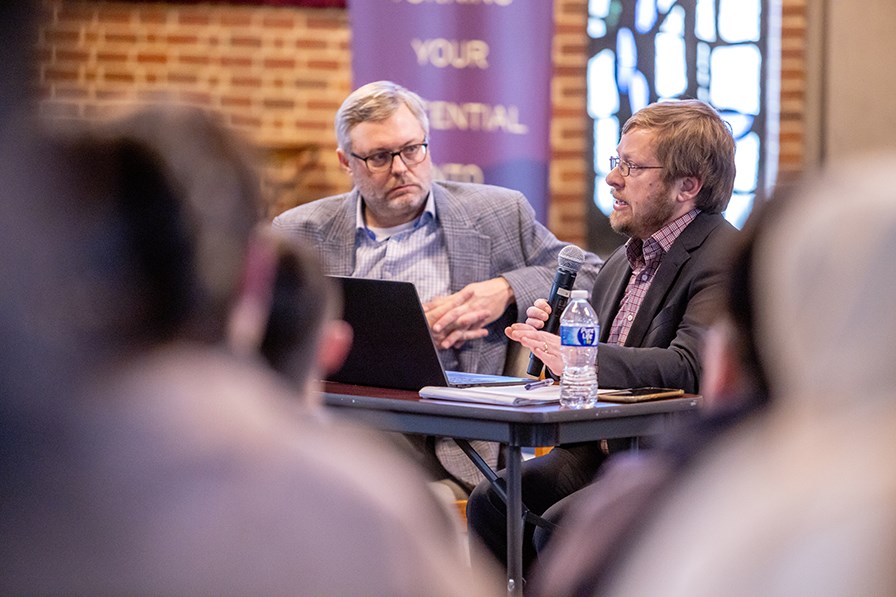
The college regularly holds teach-ins with interdisciplinary faculty panels about what's happening in our community and world.
Student Experiences
“It helped me narrow my career focus and helped me to realize the magnitude of numbers of federal law enforcement agencies out there.”
Alea Bier '13 reflecting on her Washington Semester internship with INTERPOL
Suleyman received 2023 National Association of Blacks in Criminal Justice Rosana Anderson Scholarship.
 James Suleyman ’24 received the 2023 National Association of Blacks in Criminal Justice (NABCJ) Rosana Anderson Scholarship recently. NABCJ President Jennie Amison and Rosana Anderson presented the award to Suleyman, a criminal justice and sociology double major.
James Suleyman ’24 received the 2023 National Association of Blacks in Criminal Justice (NABCJ) Rosana Anderson Scholarship recently. NABCJ President Jennie Amison and Rosana Anderson presented the award to Suleyman, a criminal justice and sociology double major.
“Justice is what he’s working for,” Daisy Ball,associate professor of political science, said. “I couldn’t be prouder to have worked with him.”
Ball and Suleyman have published several articles together and presented at the Academy of Criminal Justice Sciences 60th annual meeting. Ball then shared their research at the European Society of Criminology in Florence, Italy, where they received critical acclaim.
“James adds a unique voice to everything that we write,” Ball said. “I wouldn’t have the beautiful projects that I have had it not been for his input and stellar work.”
Through his experiences at Roanoke College, Suleyman wrote his scholarship application about what he plans to do after graduation.
“I see myself working as a school social worker in a public school. In this role, I will be able to advocate for fair disciplinary policies and processes, facilitate restorative practices with students and staff and train personnel on restorative justice theory and praxis,” Suleyman wrote in his essay. “In addition, I can promote the general well-being of school members by mobilizing family, school and community resources; addressing students’ physical, social, emotional and cultural needs; and assisting with skill-building, crisis intervention and program development.”
Amison spoke on behalf of the association and praised Suleyman for his dedication to justice.
“Each year, we give a scholarship to a deserving student to help them that is majoring in criminal justice,” Amison said. “I couldn’t think of a person that’s more fitting to receive this (award).”
Professor and Student Co-Author Book on Death Penalty
Even as a high-schooler, Maggie Anderson '13 dreamed of a career where she could immerse herself in writing and academic research. She decided to become a Maroon after being impressed by Roanoke College's Research Fellow and Summer Scholars opportunities.
The scholarly skills Anderson honed in those programs mightily impressed Dr. Todd Peppers, the Henry H. & Trudye H. Fowler Professor in Public Affairs. The summer before Anderson's junior year, Peppers invited her to help him research the late Marie Deans, who dedicated her life to the abolition of the death penalty.
The pair's work continued for six years and resulted in the book "A Courageous Fool," which was released in 2017. Anderson always thought she'd like to write a book one day, but never pictured it happening this soon. "This is a dream come true," she said.
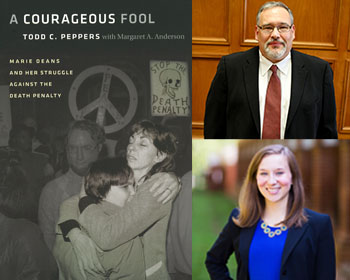
Careers & Outcomes
Our grads work for important organizations

RC Alumnus, FBI Agent, Earns “Top Cop” Honorable Mention
Stanley Meador ‘96, a criminal justice major at Roanoke, was recognized with a national tribute award for law enforcement officers in Washington, D.C.. After playing a key role in finding a child who had been abducted from her home, he received a National Association of Police Organization “Top Cop” Honorable Mention award. The six-year old girl was found alive by Meador and other FBI agents. Meador serves as the supervisory senior resident agent with the FBI in Wilmington.
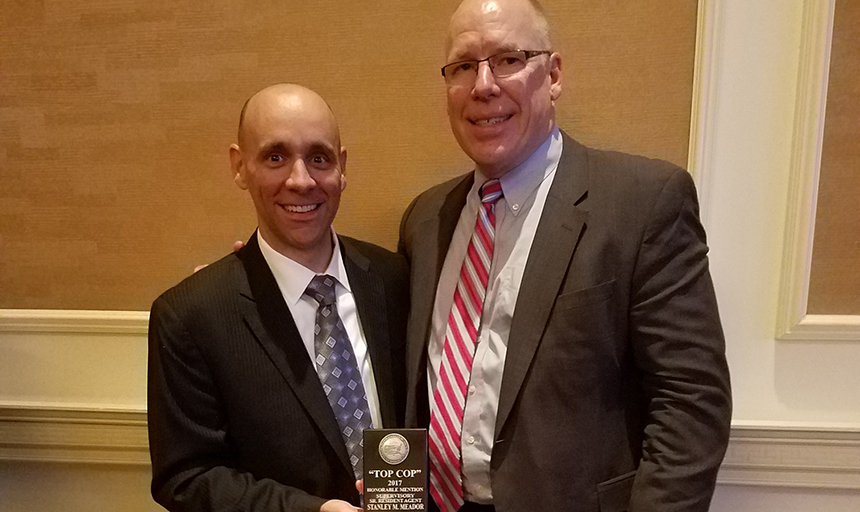
“Unparalleled Opportunities” Lead to Harvard Law Success
Bekah Carey ‘19, a Harvard Law School student who graduated with degrees in criminal justice and political science from Roanoke, is one of 48 people in her class of 565 who earned a spot as an editor on the Harvard Law Review.
“Roanoke trained me really well on all the things it said it does,” Carey said. “How to think critically, how to write, the opportunity to do research from day one. Unparalleled opportunities. I got such an incredible education and was able to hold my own at Harvard Law in a class of people who have a master’s from Oxford or had 10 years of a career somewhere and went to Ivy League undergrad.”
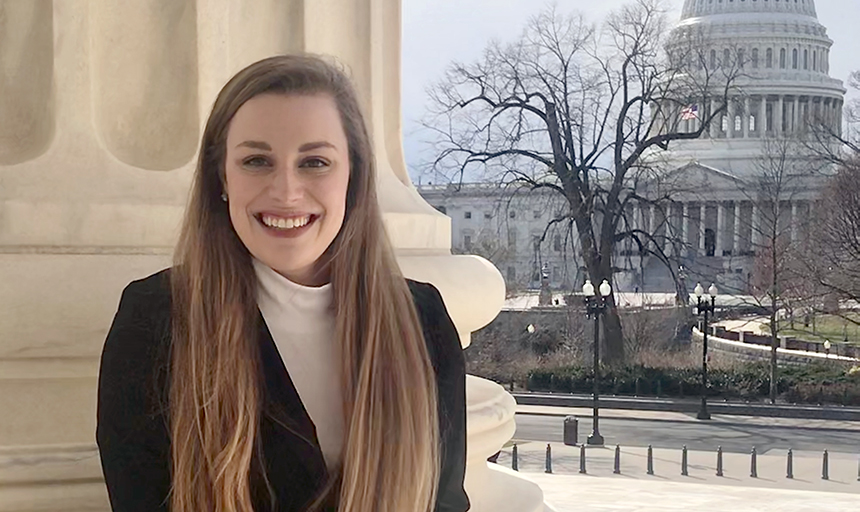
Born to Debate
Carrie Harris '05 always thought she'd end up a lawyer. As a talkative, type-A person who loved to debate any topic, friends and family told her she should go to law school. While at Roanoke, she decided to pursue a legal career in civil litigation after having internships in Washington, D.C., and with U.S. District Judge James Turk in the U.S. District Court for the Western District of Virginia.
She graduated from the Marshall-Wythe School of Law at William & Mary in 2008, and now, she's a senior attorney at Spilman Thomas & Battle, PLLC, in Roanoke, specializing in labor and employment law. Close relationships with several professors in Roanoke's Public Affairs Department, including Dr. Joshua Rubongoya and Dr. Todd Peppers, influenced and directed her career path. "At Roanoke, I feel like I was mentored and given opportunities in the real world," Harris said.
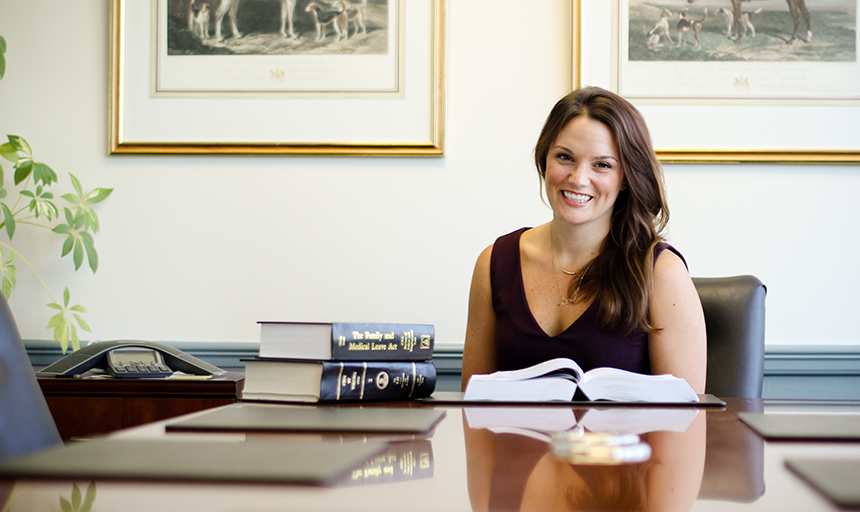
Faculty
News
-
The team competed in front of a panel of six judges in an event held at the Roanoke County Courthouse.
-
Roanoke College's D.C. program is a unique opportunity to dive into life in a new city and get resume-building experience while still taking your required courses.
-
The funding will help the college build partnerships with STEM-H innovators and strengthen the skilled workforce pipeline.
As a criminal justice major at Roanoke, you'll investigate the causes and impact of crime, as well as methods of controlling criminal behavior.
Our approach offers you both a deep exploration of criminal justice issues and practices, as well as exceptional communication and problem-solving skills. The major approaches criminality through political, sociological, scientific and psychological perspectives.
Roanoke offers students internship opportunities with regional police departments, probation offices, attorney's offices and immigration centers. Our Washington Semester gives you the chance to complete federal internships with agencies, such as the U.S. Marshals Service, the Secret Service and the Bureau of Alcohol, Tobacco, Firearms and Explosives. You'll have opportunities to engage with speakers who come to campus through the Fowler and Turk lecture series. Past guests include Sister Helen Prejean, author of Dead Man Walking; Piper Kerman, author of Orange is the New Black; Amanda Knox, a college student wrongfully convicted of murder while studying abroad in Italy; and Monica Lewinsky, former White House intern.
Students can also participate in the Inside-Out Prison Exchange Program, a unique opportunity in which traditional college students (“outsiders”) study alongside incarcerated individuals (“insiders”) for a semester. The course meets weekly, and aims to “foster social change through transformative education.” Traditional college students are exposed to the realities of incarceration, while at the same time, inmates engage in pro-social interactions with college students and gain access to academic content.
Criminal justice majors at Roanoke go on to careers in law enforcement, criminology, government, executive management, protective services, law and social work. Students are also well prepared to enter graduate programs in criminal justice and related fields, and to enter law school.
We offer a major in Criminal Justice.
